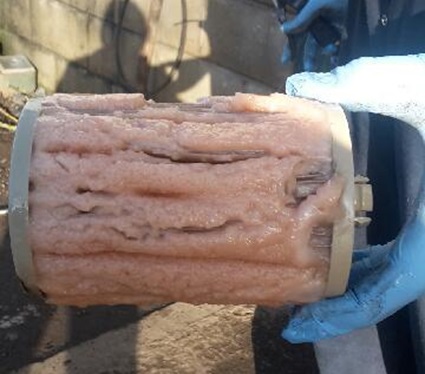Sub Menu
Industry struggles with fuel quality issues
Over this last month there have been a huge volume of cases across Scotland and indeed the entire United Kingdom where plant and machinery has suffered blocked fuel filters, damaged injectors or common rail systems. Exacerbated by the temperature drop there has even been reports of some filters only lasting 100hrs before needing changed!
Industry representatives from all sectors met at Grangemouth last week to debate the issues, Petroineos said that their fuel produced at Grangemouth (EN590 grade) is within spec and BSI standards. Further investigation is required to look into what the root cause of these issues is.
The SPOA is exploring avenues in which we can assist in finding a solution, working with other trade bodies and collating evidence however...
The issue seems to be due to regulations introduced by government (the Renewable Transport Fuel Obligation) to include a higher %age of bio-fuel in our Diesel and Gas Oil, this is done by adding what has been abbreviated as FAME “Fatty Acid Methyl Ester” which is produced from vegetable oils, animal fats or used cooking oil.
This regulation applies to the grades below which allow for upto 7% by volume of bio-fuel (FAME):
- BS2869:A2 Red diesel / Gas Oil
- EN590 White Diesel / DERV
FAME also acts as a lubricant since the amount of sulphur in fuels has been cut to 10ppm for emission friendly engines which cannot cope with high sulphur levels, problem is though that sulphur not only acted as a lubricant but it also acted as a natural biocide keeping fuel free of “diesel bugs”
As a result this brings problems such as:
- Reduced fuel shelf life including deposit laydown and gum formation
- Increase in water content resulting in poor fuel performance, fuel water emulsification leading to filter and fuel line blockages
- Increase in “fuel bug” growth causing infestations and filter blockages
- Reduced cold weather performance causing waxing issues leading to filter blockages and fuel starvation
- In tank separation of bio-fuel and crude-derived fuel
- Increase of injector issues
- Manufacturers suggesting (or insisting on) the use of EN590 fuel however both EN590 White diesel and BS2869:A2 Red diesel allow the same volume of FAME
BEST PRACTICE:
Working in an environmentally conscious manner, reducing emissions and the use of bio fuel is important to our future so for now the best practise to counteract the effects of FAME would be:
- Ensure your bunded fuel store or bowser has an inline filter and water separator, drain the water regularly and change the filter every 3-4 deliveries
- Routinely drain your Fuel store bottoms of sludge and water as it does and can build up in a short space of time
- Add an additive to your fuel store such as Anti-Wax, Demulsifier, winter fuel additive or even a Gas Oil additive to increase the cetane number to that of EN590 Diesel and counter the effects of FAME
- Additives may need to be added at a certain temperature when the fuel is not waxed, check with your supplier
- Do not let your fuel store run empty, keep it topped up
- And as always, fill your machines before finishing time to reduce condensation in the tank
Your fuel supplier or machine dealer should be able to add or supply suitable additives for you.
Resources:
https://www.gov.uk/government/publications/renewable-transport-fuel-obligation-rtfo-guidance-2019
Additives:
https://fastexocet.co.uk/product/gas-oil-supreme/
To avoid breach of machine warranties, use of additives should be in accordance with manufacturer guidelines.
Media outlets are welcomed to share this article as a link, we request that should you wish to copy text or images from this article you seek permission to do so from the author.
